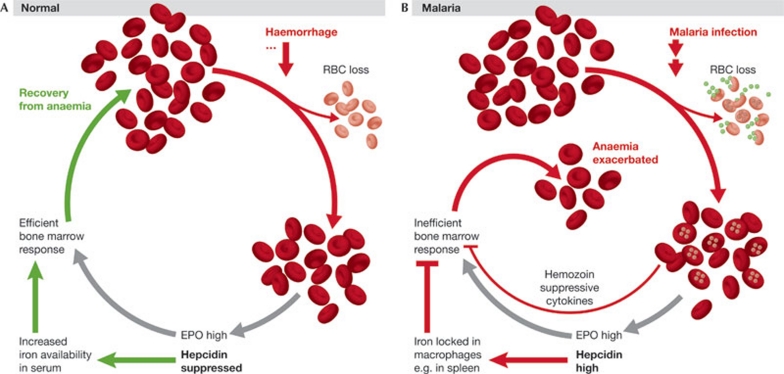Figure 3.
Malaria, hepcidin and anaemia. (A) In a healthy individual, loss of red blood cells (RBCs)—for example, by haemorrhage—leads to a hypoxia-induced increase in erythropoietin (EPO) production and a higher erythropoietic drive. Through mechanisms that are not fully understood, hepcidin synthesis by the liver is also reduced, increasing iron availability for incorporation into haemoglobin, and enabling recovery from anaemia. (B) Malaria infection also leads to a loss of RBCs, but causes an increase in hepcidin. Iron is sequestered in macrophages and is therefore not available for an efficient bone marrow response. In addition, the haemozoin released by replicating parasites and cytokines produced during the inflammatory response to infection further inhibits erythropoiesis.

